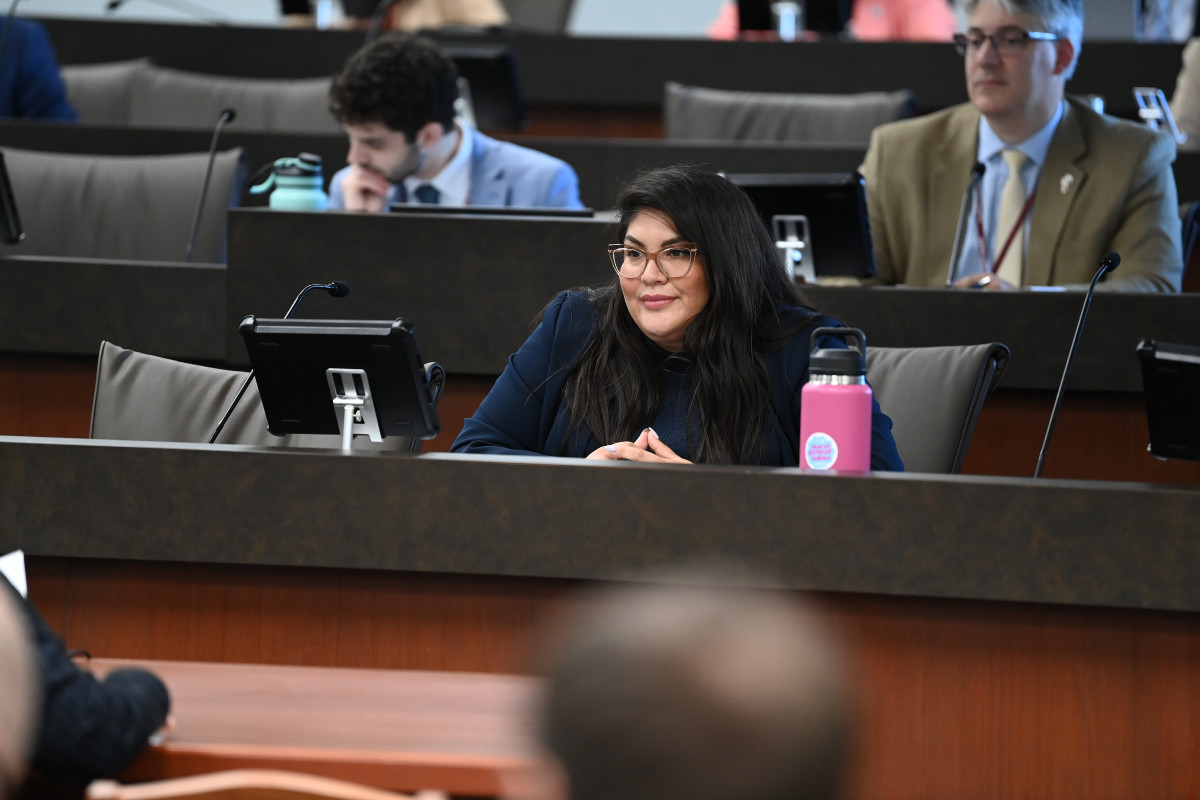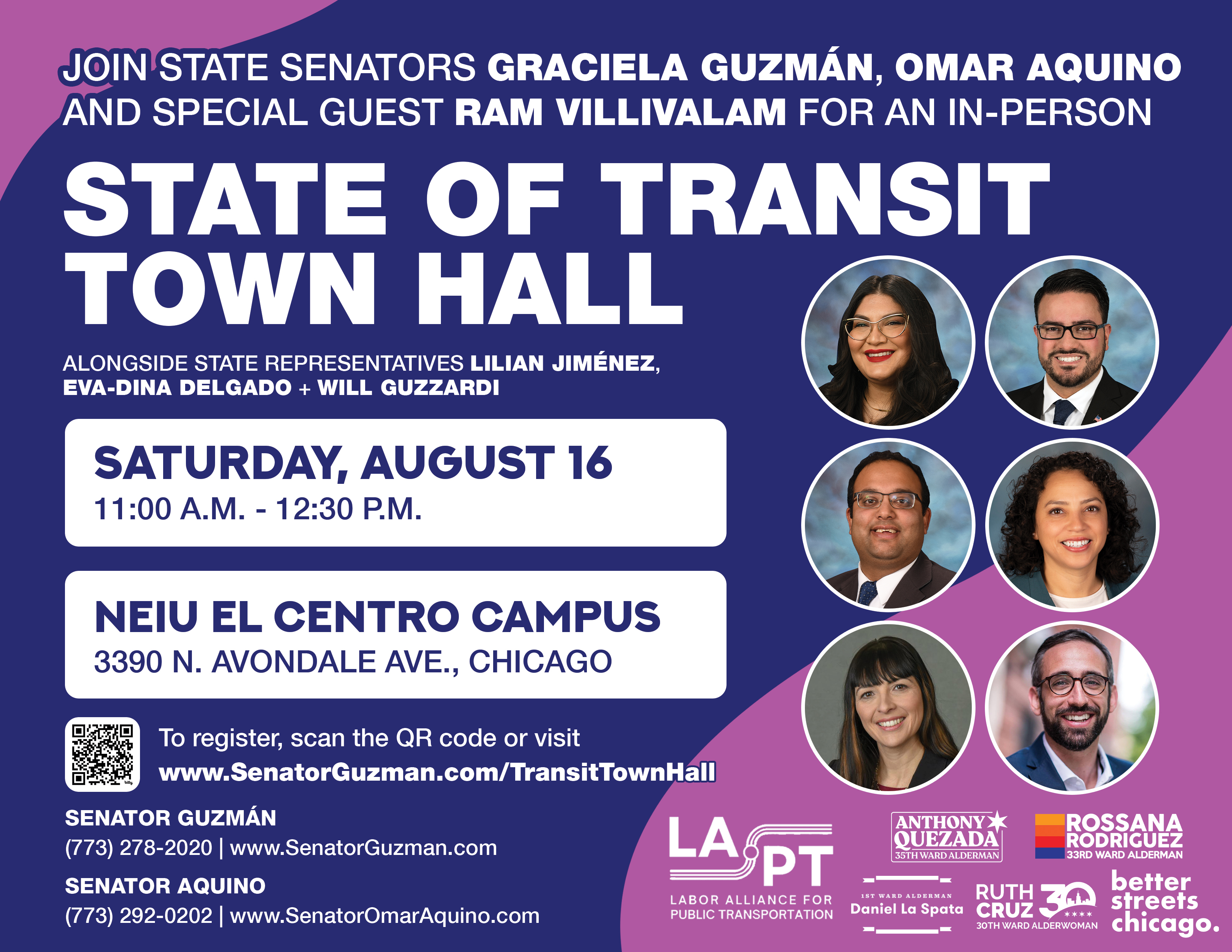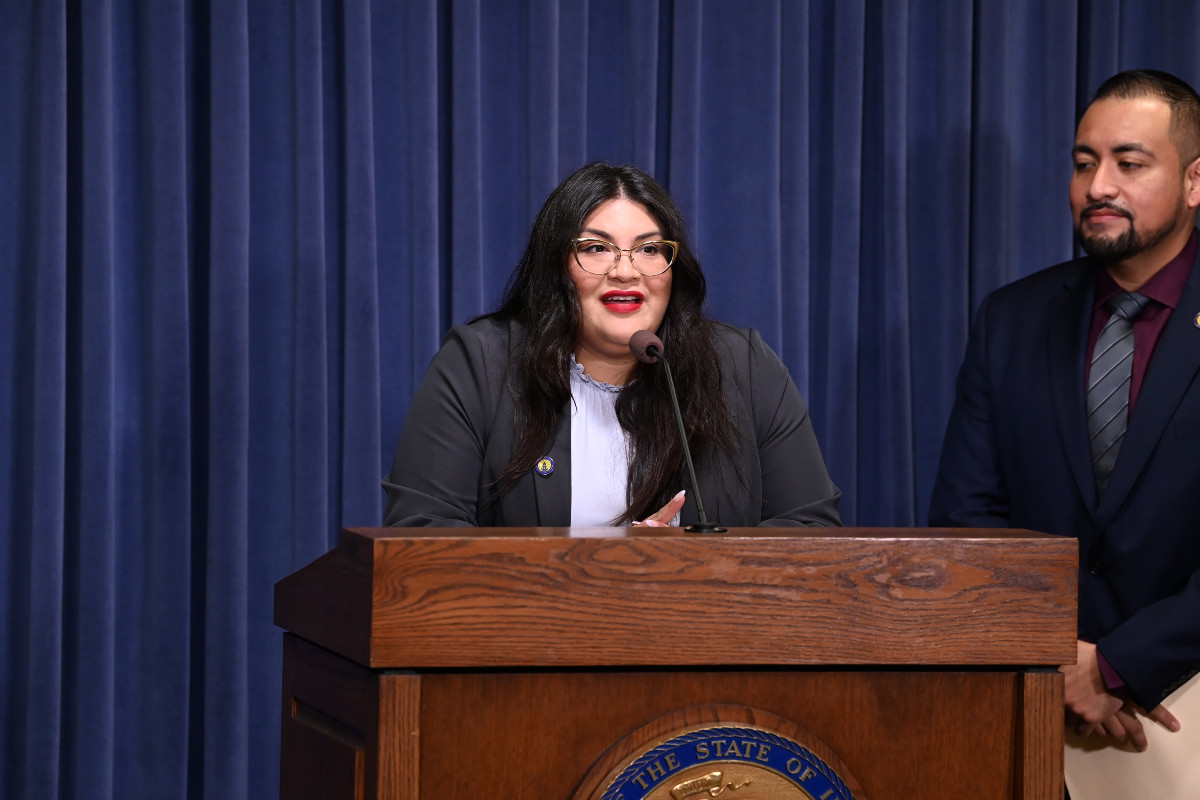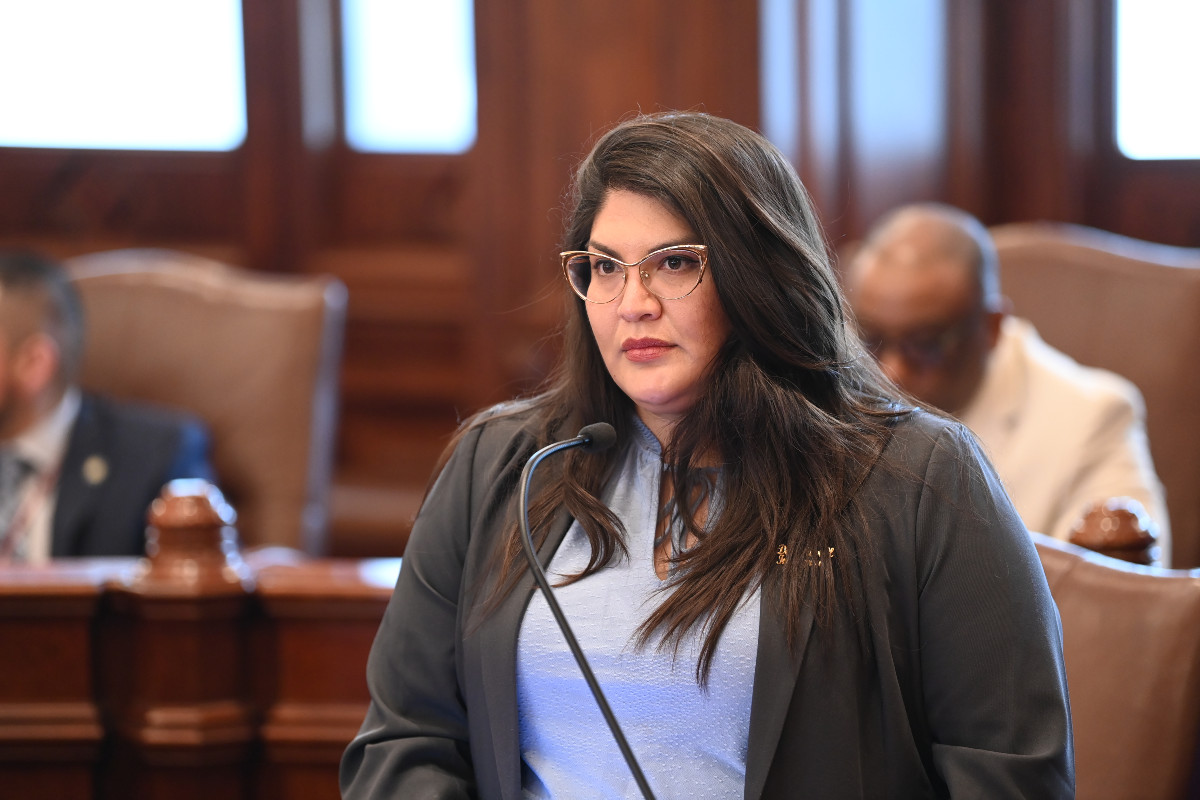- Details
- Category: Press Releases
 SPRINGFIELD —A new measure supported by State Senator Graciela Guzmán to prevent overdoses in Department of Corrections facilities was signed into law on Friday.
SPRINGFIELD —A new measure supported by State Senator Graciela Guzmán to prevent overdoses in Department of Corrections facilities was signed into law on Friday.
“In order to prevent tragic overdose deaths, we need to better understand where contraband drugs are coming from, instead of enacting policies without evidence demonstrating it will be effective in stopping the proliferation of banned goods,” said Guzmán (D-Chicago). “Thanks to our work with this legislation, we will soon have a better understanding of how these goods get into DOC facilities, so we can begin work to prevent their movement and consumption.”
Senate Bill 2201 requires the Illinois Department of Corrections to collect and publish data concerning contraband found in their facilities, including the type of contraband, where in the facility it was identified, and the method of entry into the facility. It also makes public the consequences for people in custody for possessing or attempting to procure contraband to ensure any disciplinary actions meet ethical standards and do not include excessive force.
Read more: Transparency on how contraband enters prisons to increase thanks to Guzmán
- Details
- Category: Press Releases
 CHICAGO — State Senator Graciela Guzmán is hosting a State of Transit Town Hall on Saturday, Aug. 16, with special guest State Senator Ram Villivalam to share updates about the state of transit in Illinois.
CHICAGO — State Senator Graciela Guzmán is hosting a State of Transit Town Hall on Saturday, Aug. 16, with special guest State Senator Ram Villivalam to share updates about the state of transit in Illinois.
“Whether it’s for commuting to and from work, getting groceries, or seeking health care, people in my community rely on public transit to live their lives, and could face dire consequences for their quality of life if our system is no longer a viable option,” said Guzmán (D-Chicago). “That is why I am hosting a forum for public opinion on this issue: so we can hear firsthand what folks are experiencing, and offer them peace of mind with our proposed solutions moving forward.”
The northeastern Illinois transit region is expected to hit a $771 million fiscal cliff as federal pandemic relief funding runs out. Public transit riders are currently facing issues with the system, including delayed service, a lack of routes and limited coordination of services between providers. This presents an issue for many, as they are left without reliable transportation to reach health care appointments, jobs, school and more.
Read more: Guzmán to host transit town hall with Senate Transportation Committee Chair Villivalam
- Details
- Category: Press Releases

CHICAGO —Two measures co-sponsored by State Senator Graciela Guzmán to secure more supports for high school students when applying for college and filling out the Free Application for Federal Student Aid, more commonly known as the FAFSA, were signed into law recently.
“Growing up as the eldest daughter in an immigrant household, it was incumbent on me to fill out the FAFSA forms myself, and navigate this difficult and confusing process alone at 17 years old,” said Guzmán (D-Chicago). “By establishing time for students to fill out their FAFSA during school, we are giving working students more opportunities to be able to fill out this form and get questions answered.”
House Bill 3096 requires high schools to designate a member of their staff to serve as a point of contact for students on matters concerning the application. This creates clarity on who young people can turn to if they have questions or need assistance with the process.
- Details
- Category: Press Releases

CHICAGO — Following several U.S. Supreme Court rulings on June 27, which expose a concerning shift toward authoritarianism, State Senator Graciela Guzmán is speaking out against the decisions and raising alarm around their restrictions of civil rights.
“I am horrified the Supreme Court has emboldened the federal administration’s efforts to further undermine and dehumanize immigrant families in our country through their most recent ruling on Trump v. CASA,” said Guzmán (D-Chicago). “America is a melting pot of so many diverse, beautiful cultures. It goes against our history, our fundamental values and long standing statutes to withhold the right to citizenship — which is guaranteed in our Constitution — simply because of the identity of a child’s parents.”
Despite being an established right in the U.S. for centuries under the 14th Amendment, the Supreme Court upheld the executive order withholding the right of birthright citizenship from children born in the U.S. to individuals on short-term visas or without legal status in the case of Trump v. CASA.
“The Court’s refusal to take a stand against the federal administration leaves the future of birthright citizenship up in the air and opens the doors to different interpretations among states. Not only is it heartbreaking to imagine a reality in which immigrant families could have fewer civil rights depending on which state’s borders they reside in, it is nonsensical,” said Guzmán. “Maintaining a state-by-state approach to citizenship would cause significant bureaucratic issues that would make navigating everyday systems like health care and license registration a nightmare for all involved. It would also mark one of the largest rollbacks in civil rights protections in our country’s history — a detrimental outcome for both the people it will impact and the morality of this nation.”
Additionally, the Supreme Court ruled that schools must give children the chance to leave the room if their teacher plans to read books out loud that feature gay and transgender characters in the case of Mahmoud v. Taylor. As an outspoken leader for LGBTQIA+ rights in Illinois, Guzmán is deeply saddened by this decision, and concerned for what it means for LGBTQIA+ youth around the country.
“Under the guise of protecting children, LGBTQIA+ youth will be even more at risk for bullying, which can lead to mental health struggles, and even suicide if they are able to be barred from hearing stories about LGBTQIA+ people in their developmental years because of their family’s prejudice,” said Guzmán. “My heart breaks for the children around our country who will find their light stifled by this ruling. To all the LGBTIQA+ youth in my community, my district, my state, and this nation–your identity is nothing to be ashamed of or censored, and I will continue to fight for more protections for you in the face of these attacks.”
More Articles …
- Guzmán celebrates local business receiving Made in Illinois grant funding
- Senator Guzmán speaks out against U.S. Supreme Court decision restricting access to gender-affirming care
- Guzmán releases statement on recent ICE activity in Chicago and LA
- Guzmán reviles Senate budget agreement: “We are abandoning our most vulnerable in their time of need”
Page 10 of 19



